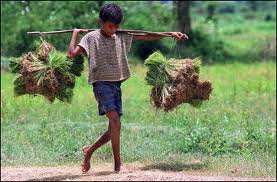 I recently caught up with Thida Yan, AJWS’s in-country consultant in Cambodia, to learn about what’s happening on the ground. Here’s what Thida had to share:
I recently caught up with Thida Yan, AJWS’s in-country consultant in Cambodia, to learn about what’s happening on the ground. Here’s what Thida had to share:
How many grantees does AJWS have in Cambodia?
We have fourteen grantees.
What are some of the themes we focus on in Cambodia?
We focus on land rights, domestic violence and human rights. The Worker Information Center, one of our grantees, works on garment factory workers’ rights. It has a center for workers where they can go to learn about the law. The Cambodian Women’s Movement Organization also works to promote women’s rights. It promotes leadership among garment factory workers. CWMO set up a women’s committee in the workplace for women to discuss problems. Garment factory workers usually come from far away and stay together in the city in an apartment they rent. Their rooms are small and they lack food because of their wages. Their health condition is not good. Sometimes they don’t understand about reproductive health, and sometimes their boyfriends are violent. The Cambodian Women’s Movement Organization provides training about leadership and critical thinking skills so the women can be leaders in their unions. Usually only men are leaders of the unions but we recently had a woman who became a union leader.
In July, I went to Kampong Cham for a public forum on land advocacy. There are problems related to public land. Some people say they have their own land that they’ve been on for more than 10 years but don’t have a land title. They want to plant vegetables or trees on their land, but they don’t feel secure because the government can take it any time; [the government] says people are on public land.
Can you tell me about the recent strike of garment factory workers in Cambodia?
They organized about 200,000 workers to get better conditions for their work and more salary. This was continued from another strike in August. They want $93 per month [Ed. Note: they currently make $61 per month.] Workers send about forty percent of their earnings back to their families. So in the strike they would like to request that the government put pressure on the employers to provide more salary.
What do you think are the most important issues right now in Cambodia?
Land issues and youth issues, because in Cambodia youth is dominant. [Ed. Note: over half of the population is under the age of 25.] There are other problems like unemployment, and people living in fear. There are many gangs, now not just in the towns but also in the countryside.
Why do you think there has been an increase in violence among youth?
In my opinion, because of low education and the influence of media. Cambodia doesn’t have intellectual property laws, so people just copy discs; they are easy to distribute. People don’t like to see the news but would like to buy a CD or DVD player, and it is cheap. Poverty is one of the root causes of violence: when people are poor, children don’t go to school and it’s easy for them to be influenced by their friends. Many reports say that girls in the lower grades, like eighth or ninth grade, are sex workers. They don’t have money, they have to sell sex. It’s not only the case for poor girls. Sometimes the rich families, they don’t care. The family relationship is low, so girls feel like they are isolated. So they are easily influenced by their friends.
Could you tell me about a success story?
We have a success story about migration. Our partners try to inform communities about migration. They train about safe migration; how to find out information about the company [that they would work for in another country]. We take information to communities about girls going to Malaysia and getting psychological problems [from abuse], for example, and some decide not to send their young women.
AJWS’s work in countries and communities changes over time, responding to the evolving needs of partner organizations and the people they serve. To learn where AJWS is supporting activists and social justice movements today, please see Where We Work.
